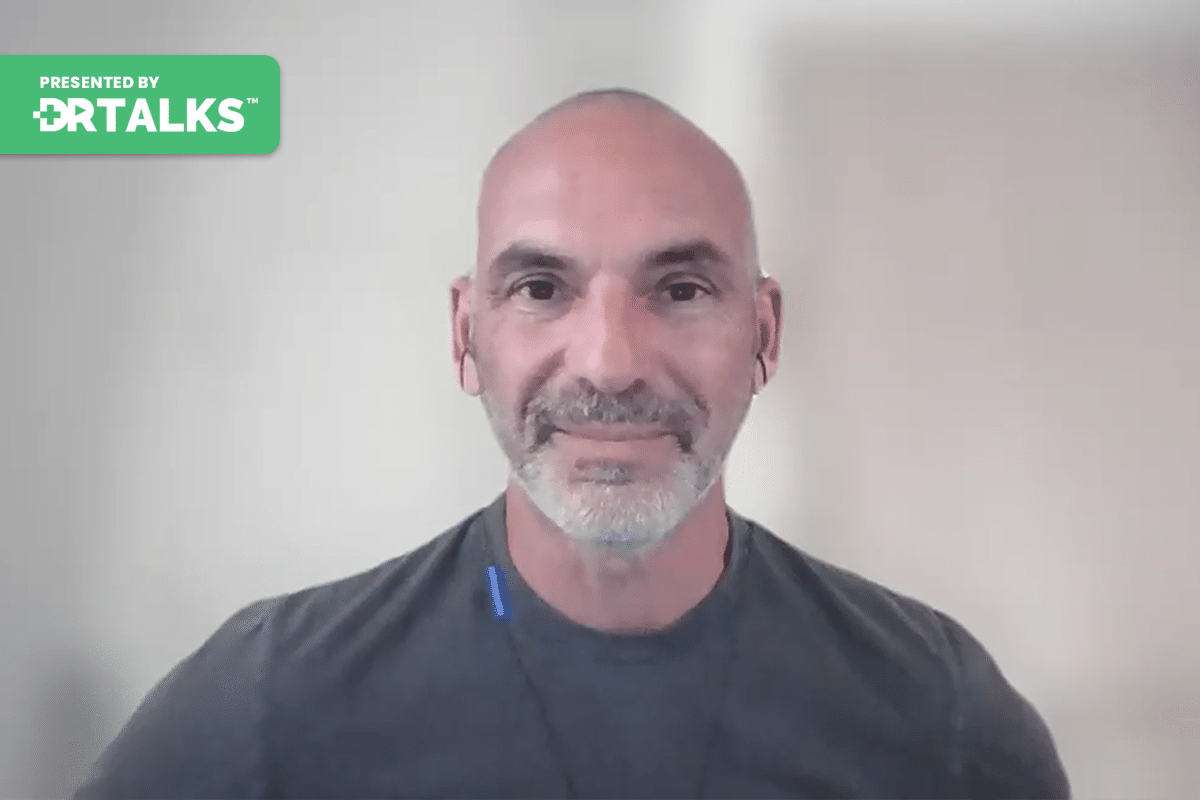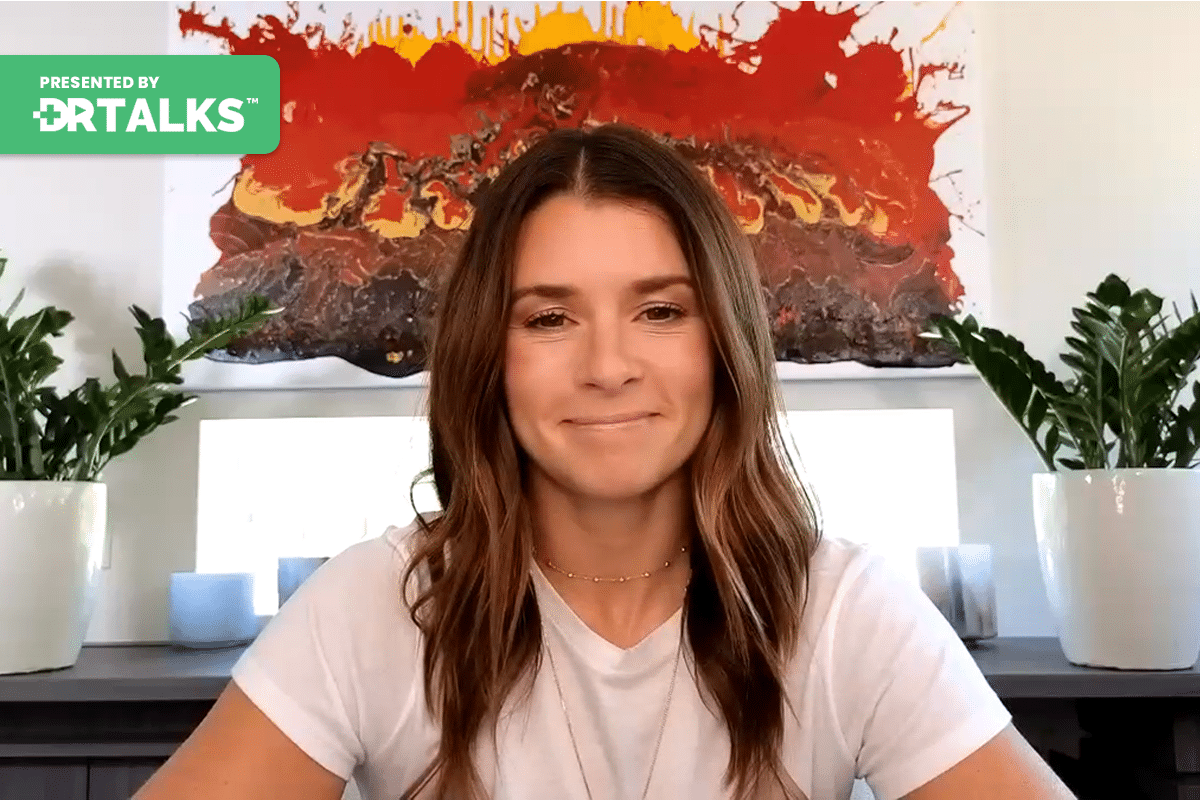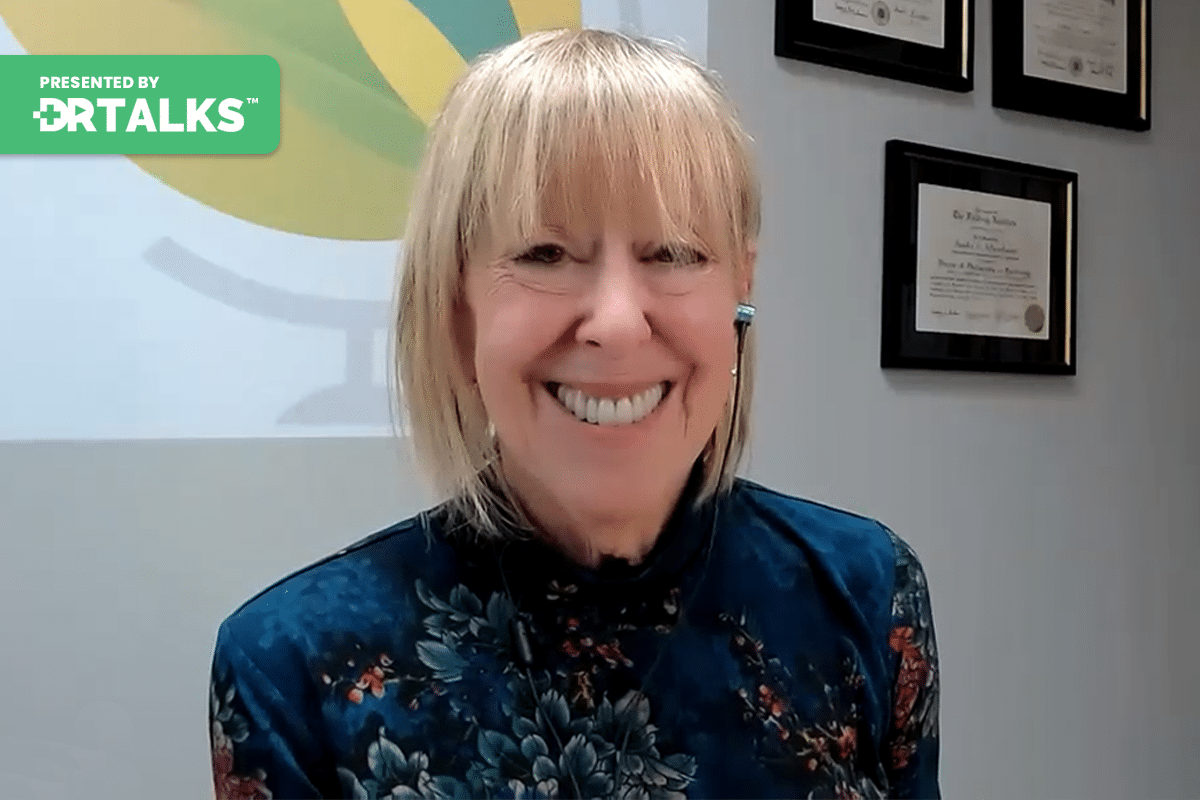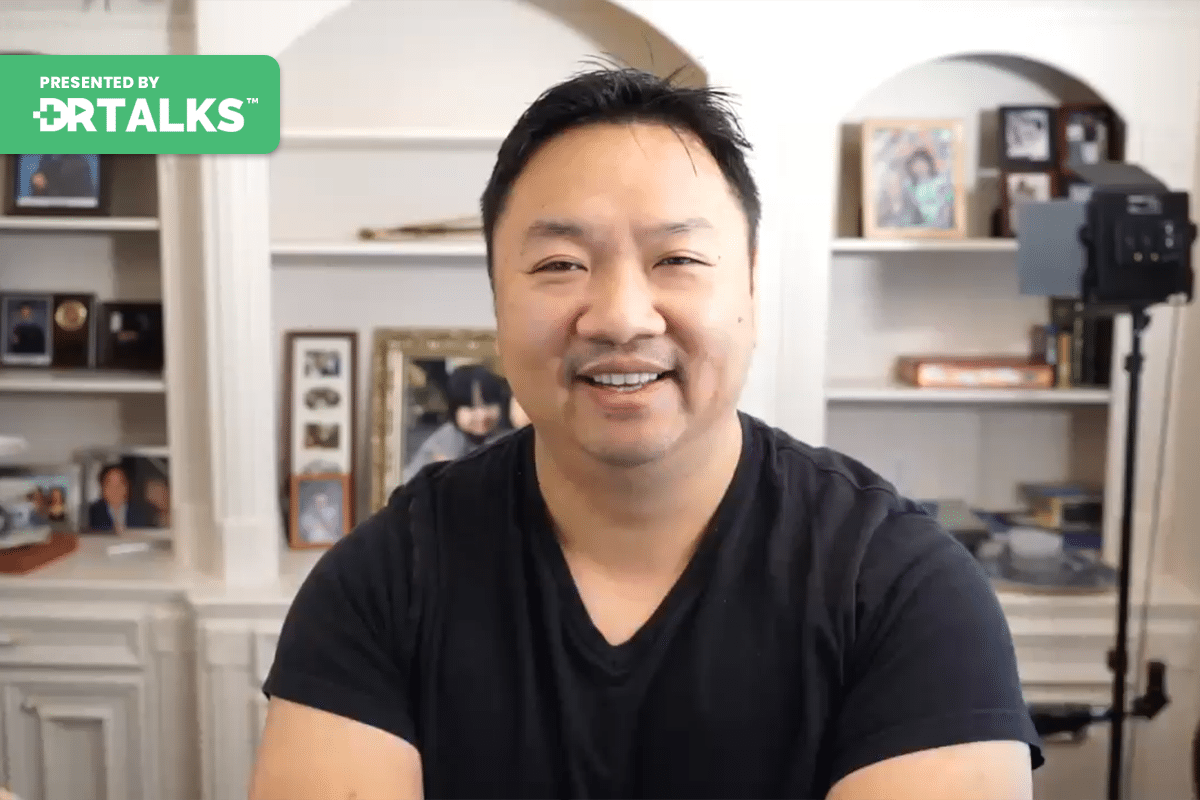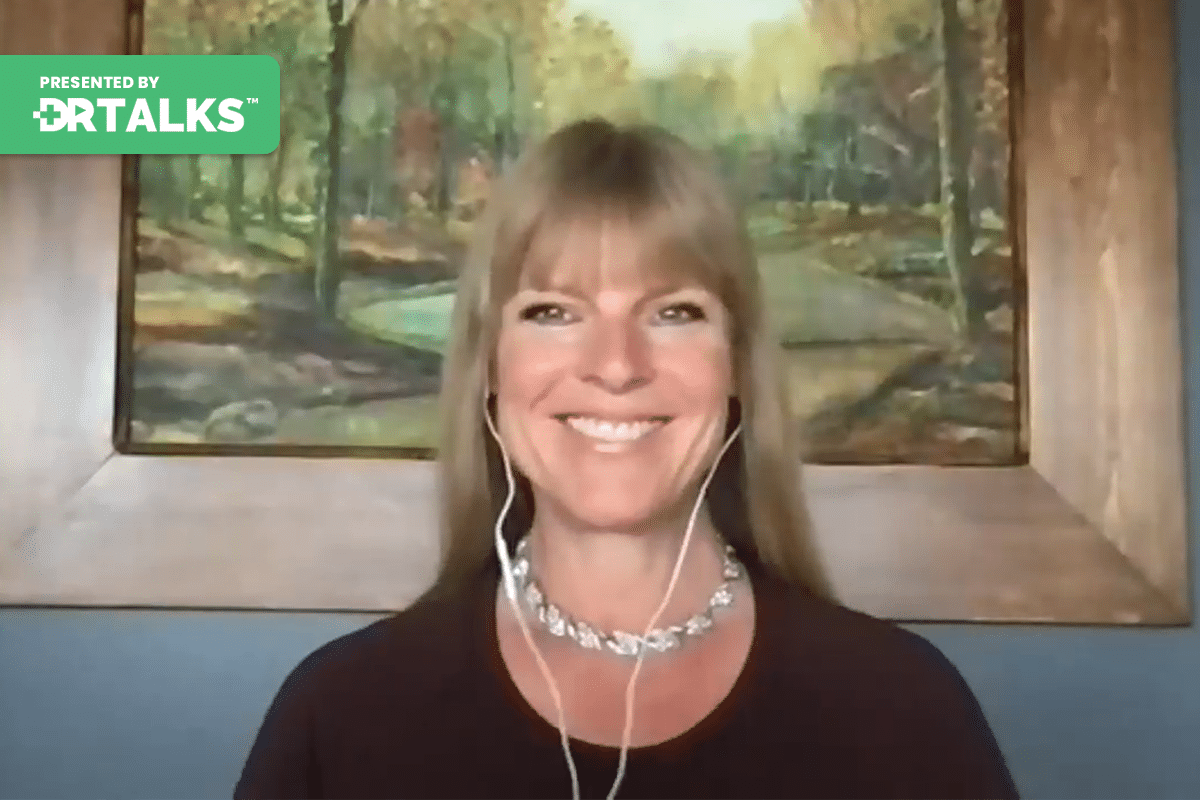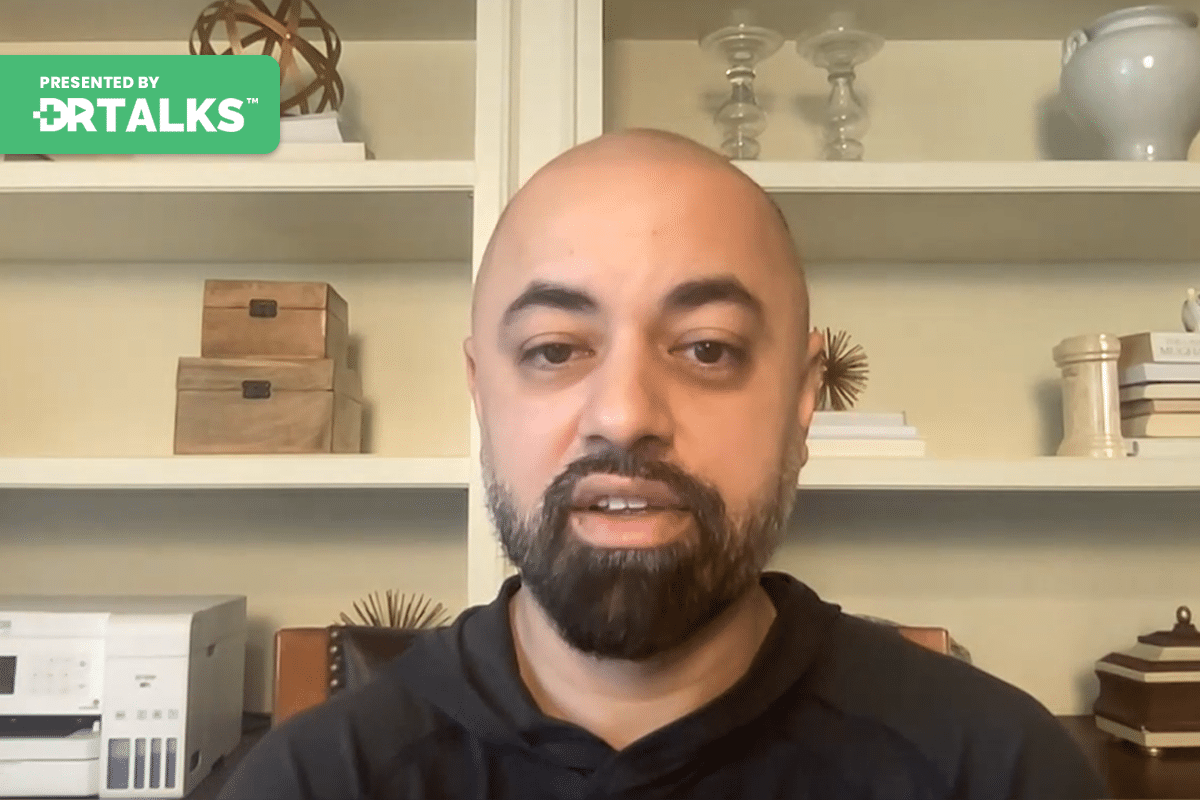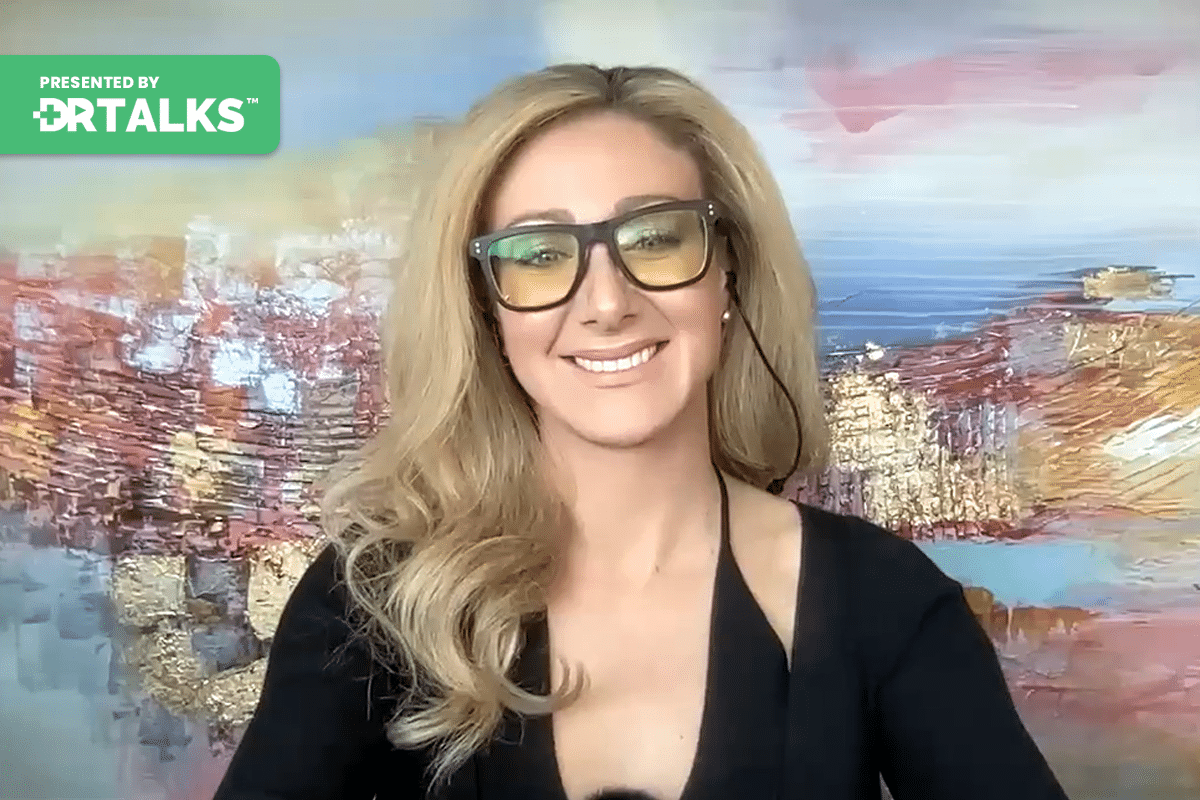Join the discussion below
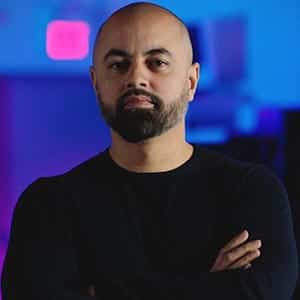
Kashif Khan is the Chief Executive Officer and Founder of The DNA Company, where personalized medicine is being pioneered through unique insights into the human genome. With the largest study of its kind globally, The DNA Company has developed a functional approach to genomic interpretation overlaying environment, nutrition, and lifestyle... Read More
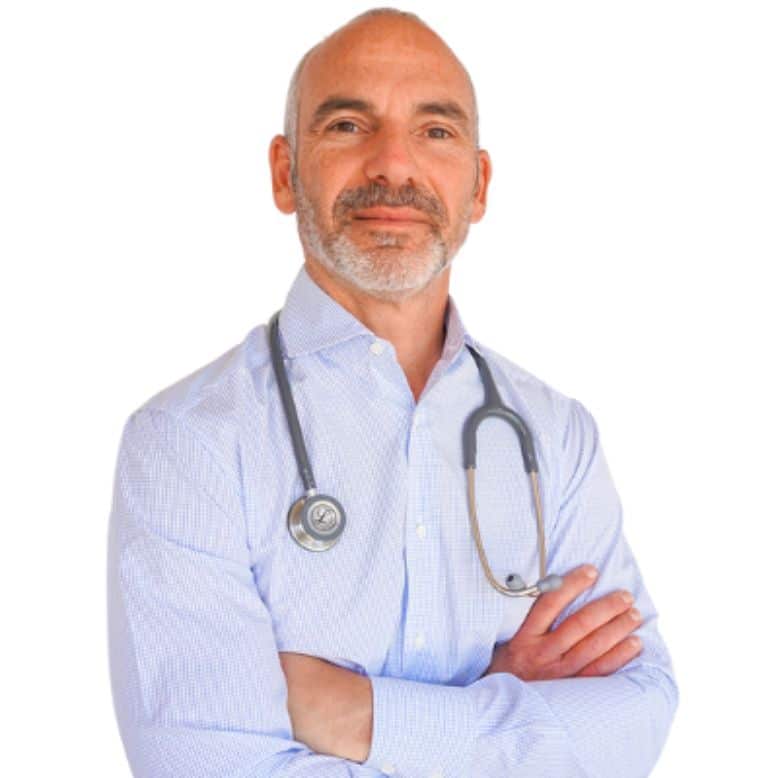
Jack Wolfson, DO, FACC, is a board-certified cardiologist who uses nutrition, lifestyle, and supplements to prevent and treat heart disease. He completed a 4-year medical degree, 3-year internal medicine residency, and 3-year cardiology fellowship. He served as the Chief Fellow of his cardiology program, managing all of the other cardiology... Read More
- Discover the vital strategies to ensure a healthy heart even at 100, challenging mainstream cardiology’s approach
- Uncover the truth about nutrition, fitness, and fasting’s role in heart health, and how to incorporate them effectively
- Learn how to take control of your heart health by employing proven strategies for longevity
- This video is part of the Fast Like a Girl Summit
Related Topics
Air Pollution, Cardiology, Cardiovascular Health, EMF, Environmental Pollution, Extended Duration Fasting, Fasting, Genetics, Gluten-free, Healthy Lifestyle, Heart Health, Holistic Health, Intermittent Fasting, Longevity, Mental Health, Nose-to-tail Eating, Nutrition, Organic Food, Prevention, Stress, Technology Addiction, Toxins, Wild SeafoodKashif Khan
Alright. Welcome back, everybody. We are talking to the one and only Dr. Jack Wolfson. He is here today. Thank you for joining us.
Jack Wolfson, DO, FACC
Thank you so much, Kashif. It is a pleasure to be on. Again, I’m just really excited to share holistic heart health information for it’s certainly the women. All these women oftentimes take care of their men, and some of them are still in that wisdom about heart health and wellness, to help and support the men in their lives would be helpful.
Kashif Khan
For sure. Your perspective is interesting and incredible. We are lucky to have it. Because you are a cardiologist. You have been doing this for so long. And everything we are talking about is why you do not do your cardiology textbook work anymore. Not that that has been thrown out the window, but you learn there is so much more to true health as opposed to reacting to cardiac issues. What you are saying is we should all have this goal of a 100-year-old heart. Let us live with that life, and it is not just to live the life; let us be vibrant at that age. What is the gap between here’s and conventional allopathic cardiology and that aha moment for you and what you’ve learned, and what we need to change?
Jack Wolfson, DO, FACC
Yes. After spending 10 years in the biggest group in the state of Arizona and just dealing with the sickest of the sick and just pharmaceuticals, procedures and then you get your eyes open to what it really means to be healthy and well when you think about the food that we eat and the lifestyle that we have, and the thought processes that we should have. We think about all the advanced testing we can do and all the evidence-based supplements, and there is plenty of evidence on all of this. Then we wrap it up with biohacking strategies to support heart health. I think when we do that, that is how we can get the 100-year heart. I know you are a genetics specialist, and I think that when you overlay the healthy lifestyle on top of the genetics. We can really do some amazing things to make sure that we are really on a path for 100 years and plus. But unfortunately, for the medical community, the best they can offer is late 70s for men and early 80s for women as far as longevity, and that is abysmal. I mean, I am 52 years old, and I’ve got young children. I would like to be a grandfather one day and have plenty of clarity, vitality, and longevity with the grandkids. Unfortunately, the standard medical community does not offer that.
Kashif Khan
Yes, and you walk your talk. I just saw you in Arizona a couple of weeks ago, coincidentally, and you are walking around in a 30-year-old body and you are doing it. This is the challenge: you go to most doctors, and when you walk into the office and see who we are talking to, it’s like, That guy is going to teach me about health?
Jack Wolfson, DO, FACC
Well, thank you, and my body feels that age. I do not know if my hairline and my coloring reflect that as well. But listen, I did not start on the path to health and wellness until I was 35. For the first 35 years of my life, I ate the sad, the sick, and the standard American diet. Fortunately, I was able to escape from that without serious health issues. Now, I am really on the path of prevention to prevent something bad from happening. My father would die of a Parkinson-like illness at the age of 63. That was very motivational to me, as was, of course, meeting my wife, who is a D.C., doctor of chiropractic, and then she instilled in me that I needed to become a D.C., not a doctor of chiropractic but a Doctor of Cause, and that is what motivated me to move forward. But to your point, I left a group of 40 cardiologists and cardiovascular surgeons, and two-thirds of them were overweight, and probably 20% of them would be considered obese even if they knew the real health strategies, which they don’t. Yes, they would not be very believable because they did not follow any of those. I mean, listen, the cardiologist gets to not smoke; there are not too many smoking cardiologists these days, but after that, everything else that they do is totally unhealthy. Maybe some of them make some effort to exercise, and even then, it is going to be in a blue-lit artificial lighting indoor gym with all the toxins, the EMF, and chemicals inside there. You are not going to go to your cardiologist for health advice, that is for sure.
Kashif Khan
Yes. You will see it over and over again, where, first of all, we are talking with the number one killer; this is what takes more lives than anything. Why is it that the heart is the first to go when its lifestyle choices are driving us there? Why is this a big red flag?
Jack Wolfson, DO, FACC
Yes. The heart is a pretty important organ, as all the other organs are, really. But of course, if we do not have a heart and a heart function and then the possibilities of all the different heart issues, whether it is a heart attack, congestive heart failure, heart rhythm problems such as atrial fibrillation, it is a major burden on society. These violations, or deviations from “Eat well, live well, think well”, are ultimately what leads to all disease. Again, back to your experience is that, you take these violations of “Eat well, live well, think well” and you overlay it on someone’s genetics, and of course, this family will have cancer, and this family will have heart disease, and this family will have Parkinson’s, another movement disorder, and this family will have a lot of autoimmunity, and some families, unfortunately, these days have all of them. I think the other thing too, is that, as we look at society in general, people are getting sicker and sicker, and younger and younger. And yes, it is time for us to put a stop to it.
Kashif Khan
What are those threats, and what has changed? We have not changed; we are genetically the same. People are getting sicker and younger; what is causing all that?
Jack Wolfson, DO, FACC
Yes. Our genetics are the same. It is all about how the environment and food influence our genetics, and how our thoughts influence our genetics. And again, I have learned a lot of this from listening to you and people like yourselves. That is again, the things that are changing are just more toxicity; there are just more environmental toxins that are available to us today than ever; there is more EMF; there is more air pollution; there are more synthetic and artificial compounds that the technology, again, back to the EMF story, where the tech addictions that people have glued to the tech during the day, glued to the tech at night. Tech during the day, I think, is a reality, and I think that there is some amount of that that just comes with 21st-century living. Listen, you are looking into your device right now; I am looking into my device right now; my cell phone is five feet away from me, but really, the tech at night that is where it has got to stop.
Unfortunately, a lot of people have nocturnal jobs; maybe they are night shift workers, maybe they drive a truck at night, maybe they are nurses working in hospitals at night, or maybe they are security at night, and it is just extremely unhealthy. Those people who are night shift workers have a much higher cardiac mortality rate than those who do not. We are living in the sickest time on the planet, and then not to mention the stress, and the fear, and anxiety that everybody is under these days as we come out of COVID, and what the stress, and the fear, and the worry of all that was the anger, and the depression, and the social isolation that led to a lot of different factors that have stacked up upon us. Ultimately, I think also people are just making the wrong food choices; we have got drug issues that are out there. There are so many different factors that are really against us, and certainly even the younger generation.
Kashif Khan
Yes. There are a lot of threats, and we know that our context is not aligned to longitudinal health anymore, and that is why chronic disease is so prevalent. Then it is like, Okay, you have been doing this work and you stepped away from conventional cardiology, not that you do not use it, but there are other tools, including nutrition. You have done the work and research; let us start there. What should nutrition look like if we are stepping away from the sad or the food compass or whatever? What is it actually? What is correct?
Jack Wolfson, DO, FACC
Yes. That is a great question. I think, just like our ancestors did, our ancestors were hunter-gatherers; first they hunted, then they gathered. If I could say this, it is that there is a lot of debate in the food industry, of course, in all the different food gurus that are out there, and they would say, Well, vegan, paleo, keto, carnivore, whatever it may be. The reality is that let us just eat organic food; let us just all agree to get the chemicals out of our foods, and no matter what diet you are following, just make sure that it is organic. After that, I am a huge wild seafood fan. The wild salmon, sardines, anchovies, clams, oysters, shrimp, lobster, and crab, a big fan of all those, and then nose-to-tail, pasture-raised animals are going to be super important. and I am a proponent of gluten-free as well.
There is no benefit to eating gluten; there is no reason to eat it, and it can only cause us harm without any benefits. We choose to be gluten-free and ultimately to the ideas of fasting, intermittent fasting, and extended duration fasting. I love that concept. Because the way that I visualize it is that as you get into some of these longer fasts—48-hour or 72-hour fasts, that is when the body starts looking for fuel. And once a lot of your fat storage is gone then the body starts looking for fuel because it is not coming in through your mouth, and the body starts to break down coronary artery plaque. It is not going to break down your brain; it is not going to break down your heart, your liver, or any organs that are necessary; it is going to start breaking down scar tissue that is not necessary. That is all that coronary artery disease is just scar tissue meant to heal an inflamed vessel. As the body starts to break that down on extended fasting, that is when I start seeing. I have seen this plaque reversal, which is a fantastic thing. I think that pretty much highlights my food strategy. For those coffee drinkers out there, then coffee is great as long as it is organic, mold-free, and mycotoxin-free; same thing with tea and high-quality water. That is a good start.
Kashif Khan
Yes. Well, what you just said there, it is incredible. Because I have never thought about it in that context. Again, you pointed out genetics a couple of times, so we think about cardiac disease as this endothelium-inflammatory problem, and like you said, scar tissue, then there is cholesterol that is built up. Then I think of fasting as I am burning the fat on my belly, I am using fat as fuel, there is some fat removed from my liver, but I never quite went to, Hey, you are stripping it off of the arteries and you are stripping it off the endothelium, and you are reversing time, literally. You have seen evidence of this.
Jack Wolfson, DO, FACC
Yes, I know. Because one thing I am not really into, to say the least, I am not a fan of CT scans or coronary artery calcium scans. I do not like radiation exposure, and I do not find that test useful. But for some people who have had the testing done and then, against my advice, went to have the testing done again, we are seeing plaque reversals from people who followed the whole plan. But in a lot of these people, intermittent and extended-duration fasting is part of that plan. The idea really first came to me, Kashif was when you would talk to people who were doing extended fasting and they would talk about how skin lesions would start to disappear and skin tags would clear up. And even skin cancers would start to clear up when you were fasting, as the body realized that that material was no longer necessary for whatever. It is really just storing junk in different places. I think it is all simultaneous in that, even as we are fasting now and we are utilizing fat for fuel, not the only fuel. I believe that at that moment, when the body is starting to get rid of this excess storage tissue, scar tissue, and we will see plaque reversal, and it is an exciting possibility. The good news is that, too, actually, it is not only free; it is a money-saving proposition. When you are doing extended fasting, you are actually saving a lot of money because you are not eating. Eating is the biggest expense in my household, I will tell you that much.
Kashif Khan
Yes. Money back in your pocket. Also, reversing disease is a whole other load of cashback in your pocket because you do not want to be paying hospital bills. I have heard this, but obviously, you would know this: it might have a much deeper level than we would, that when it comes to a cardiac event, that women just fare so much worse that they are more likely to actually not even get through it. I think the number was 66% of women who will die on their first cardiac event; they did not even know they were sick. What is the gap there? What is the disparity between men and women?
Jack Wolfson, DO, FACC
Well, I think in a couple of reasons. Number one is that it is still a coronary disease, thought to be a man’s disease. Even amongst the cardiologist and the emergency room physicians, when a woman comes in, they are just not thinking cardiac first, and that is a mistake. Now, women can present with chest discomfort and shortness of breath that could be signs of a heart attack. But we always have to pay attention because sometimes the symptoms maybe, I just do not feel right or I have been feeling fatigued, and these kinds of complaints or symptoms, the men often do not think of as being cardiac, but they truly are. That is certainly one factor. I also think that, listen, women are totally different from men, and that is obvious. But let me say this, is that the women, I think really have this sixth sense, this radar about them that really senses danger much better than men do, especially the premenopausal women. They sense that impending danger, which I think is something that we are genetically designed to have to protect us during times of pregnancy. Again, it is just that pregnant woman, that menstruating woman, who has that sense of danger, and they know the environmental toxins and pollutants. That is definitely a factor in why women, I think, suffer from symptoms in maybe a different way, and then let me say this too, is that women are uniquely predisposed to cardiac stress events such as SCAD, or spontaneous coronary artery dissection, the number one cause of heart attacks in menstruating women, and that is unfortunate and that is highly stress-related. And then number two: there is a condition called broken heart syndrome; the official diagnosis is takotsubo cardiomyopathy. Takotsubo is a Japanese word. But the point being is that, that form of cardiomyopathy, the woman is a very stressful event; she then suffers a heart attack, and it is not the classic thing where there is a blockage or any plaque that is visible. It likely is a coronary spasm from the stress kind of the stress-induced autonomic abnormality and then also a stress-induced clotting abnormality that goes along with it. I think that combination is probably the most likely theory as to why they developed this. But Kashif, it is getting more and more common. We are seeing a lot of that then and stress is the instigating factor and that is obviously a big-time problem.
Kashif Khan
When we think of the classic plaque buildup heart attack, that is one of many forms of things you need to be looking out for, and if you are not considering all of them, because I heard you say in the very beginning you were talking about emotions and relationships, that is why that could be really important. I was wondering where you were going with that, but now I get it. It is your thoughts and your feelings that can drive it. How do you manage that? Because somebody is coming to you as a clinician, they are probably thinking, Give me a pill, and then you are saying, No, your relationships are screwed up.
Jack Wolfson, DO, FACC
Yes. People come to see me, they kind of know what I am all about; they know they are coming for a natural approach as opposed to the old me, which is a pure pharmaceutical approach. Again, it is not because these men and women are not super intelligent doctors; I mean, they are; it is just that they are trained in one particular thing, and they are just not trained in health and wellness. So in “Eat well, live well, think well”, all of those are equally as important. The eat is as important as the think and the living and all the way around that whole thing, the whole concept. I talked about this in my book, chapter five, it is called “One Nation Under Prozac”, in my book “The Paleo Cardiologist.” And it is not that a woman or man needs Prozac, for that matter, it is really telling people, Hey, if you have anger, anxiety, stress, or depression, you are at much higher risk of having a heart attack, stroke, and dying, and the answer is not Prozac, the answer is finding you are happy. The answer is self-acceptance and gratitude; the answer is spirituality. The answer is community; the answer is a sense of purpose and passion; and the answer is to find security in your life. You have to be, I mean, all of these things do take work and effort, but the idea of being secure in your own home or securing your job, or securing your relationships, those are kind of the big five things that we look at under the concept of think well, and if you are not thinking well you are in trouble. And so many people just do not get that message. It is just as important as the live well, and the live well components are things such as sleep, sunshine, and avoiding the artificial technology and lights that we talk about, especially at nighttime.
Mold and mycotoxins from water-damaged buildings are big things that I have been lecturing on for several years now. The movement: everybody knows that exercise is good. But again, you want to be active outdoors as much as possible, get under the care of a chiropractor, and see a holistic dentist; those are kind of some of my main tenets to wrap it up. Like you said, many people would just say, I do not want to do any of that; I am not going to do any expensive testing; I am not going to eat this food; I am not going to bed after sundown; and I am not giving up my cell phone. Yes, okay, well, do not do that, and they are like, Well, I will just take a pill. Well good. You can take the pill, but the problem is that you are going to die. You are going to die many years earlier than you should have, and you will not enjoy the clarity, the vibrancy, the vitality, and the longevity. It is a death sentence, and it is sad. People, well, it is not even that they choose that option; they are not even given the option of the stuff that you and I are talking about, Kashif. And I have been given the option of, Hey, let us really take a deep dive into your health. They are not being told. That is why you, me, Mindy, and everybody else are trying to shout from the rooftops, Hey, we’ve got this better way over here, and it is the only way to longevity.
Kashif Khan
It is almost like that, even just the process of being in the health care system forces you to think the wrong way that you are talking about. Because one of the first questions you ask is family history, and then you start to believe this is, quote-unquote, genetic, meaning it is going to happen and it is innate. Why should I bother working on something that is in my family history? Because it is part of my genetics. I mean, how much truth is there to that?
Jack Wolfson, DO, FACC
Yes, and it is an easy out for the physicians. The physicians. Hey, doc, why did I have a heart attack? It is genetic. Okay, really? One-third of the adult population has known coronary artery disease; does one-third of the population have bad genetics? It is horrific. Again, that is why I love this stuff of what you are doing. Because, again, you take the genetic components and then you wrap on all these different things of what we can do to kind of biohack our genetics, which is really biohacking the genetics in the 21st century. If we lived in the ninth century, we would not have to do that; we would just be living in a hunter-gatherer, very healthy world at that time. I think ultimately that as we try and get people out of that family history type thing, you have a family history because you live the same way as your parents and your grandparents. If you want your health to be different from your parents or grandparents, you have to live a different lifestyle than what they did.
Kashif Khan
Yes. I think the most extreme version of that that I have seen recently was this interview on 60 Minutes, where I do not know the person’s name, but it was some health adviser for the Biden administration came on and said that obesity is 80% genetic and has nothing to do with lifestyle and exercise, and then about a week later Ozempic came to market. Just to give people an idea of where you should get your information about what you should believe. There is a little bit of serendipity there, and why that all unraveled the way it did. But I can assure you that genetically it is not 80%; that is not true at all. One thought in question for you, and this is just for me personally, is that the heart I know has a high density of mitochondria. We are hearing in these biohacking circles, everybody’s working on their mitochondria. How much is there to be said for heart health longevity if you specifically work on that? How much difference does it make?
Jack Wolfson, DO, FACC
I think that all the things that we talked about impact the mitochondria. When you eat the right foods, it supports the mitochondria. When you live the right lifestyle and avoid the toxins, it supports the mitochondria. When you think healthy thoughts, I believe that helps support the mitochondria at the very least on a bioenergetic level. Then test on guesses, and use evidence-based supplements, and then use the biohacking strategy. The question is, do red light therapy, sauna therapy, cold therapy, essential oils, or methylene blue, which is very commonly discussed in different circles, do all these things help to support mitochondrial health? They do. Again, I do believe there is a time and a place for pharmaceuticals and surgical procedures, but it is at the end of the line as opposed to right at the beginning. The mitochondria are absolutely critical. I think that so many different things can support mitochondrial function, and they are all inside of how to eat, how to live, and how to think.
Kashif Khan
Okay. First of all, curiosity number two: since we have your time, I keep reading that three, four days a week of sauna reduces your chance of dying of heart disease, like 30% or 35%. What is going on there?
Jack Wolfson, DO, FACC
What is going on there is that the literature that comes out of Finland is really the most effusive about the benefits of sauna, and that is where you can see dramatic reductions in heart attacks and strokes and people dying when they have frequent sauna use, and that is from the old-style sweat box sauna. There are undoubtedly benefits to sweating and to the heating of the system, if you will. But then you add in the infrared component that a lot of these new companies are using. I think that is where you really upgrade the whole process where the infrared energy, that longer wavelength of light, is getting into the mitochondria that we are talking about and really improving mitochondrial health and function and cytochrome function. We are making more ATP, we are generating more cellular water, we are improving the electromagnetic fields from the mitochondria that are being generated, and there are lots of different benefits from sauna in that aspect, and I am a big fan. Cold therapy, it is not that I am not a fan of it; I really do not like doing it. I think that there is value to it. I do not think anybody necessarily loves getting in the cold tub. I am a 35-year-old Chicago guy; I know you are a Toronto guy. That is why I left Chicago because I did not like the cold. I cannot say that I dig on that. But there are a lot of different things; there is something for everybody. It is really just an amazing time to be around and be able to do that. I just want to make that comment about obesity too and kind of go back to that for a second. There is always the genetic link to obesity. Obviously, as you said, right afterward, they are going to release a new drug for weight loss. Ultimately, everything is driven by money; everything is in the power of the pharmaceutical companies. It is just more than, I do not want to say it is more than the military complex, but it is right up there with the military complex of pharma military. They are the biggest influencers and controllers in the world; add in banking on top of that. Now we have maybe the triumvirate of where that all goes.
If you think about people from a thousand years ago, or 5000 years ago, or like to quote a movie, or talk about the movie “Castaway” with the actor Tom Hanks. Tom Hanks, who is on the island and he eats coconuts, fish, and avocados; he is in the sun all day long; he goes to sleep on time; he wakes and he watches the sunrise; there are no chemicals or pollutants, or toxins at any high level in that area. If you live like that, you will never be obese. If you are on that island, there is no chance you will be obese; there is zero point zero zero percent chance you will be obese. Obesity: yes, you could be genetically predisposed to obesity, but to all what you put into your mouth and then also, again, how you live your life. It is not just about food; when you get less sunshine, higher risk of obesity; when you get poor sleep, you have a high risk of obesity; when you get more environmental chemicals and mold mycotoxins, you have a higher risk of obesity. There are a lot of different factors that go into it.
Kashif Khan
Yes. That commercial influence you talk about as a Canadian, every time I fly into the US, which happens a lot, there is always this culture shock of turning the TV on and seeing the pharma commercials. The US is one of two countries in the world that actually allows pharmaceuticals to be advertised directly to the public. The other country I think is New Zealand; it was only because of some special need for this senior product that came out that they needed awareness around. We are talking about the number one advertiser and the number one buyer of advertisers in the country, is pharma.
Jack Wolfson, DO, FACC
Yes. Believe me, I guess I would like to live in a world where there is a rule maker, and it is me, and I get to make the rules. Since that is not the case and I do not make the rules then I think that freedom to choose is the ultimate thing. I am not going to dissuade pharmaceutical companies from advertising on television; I think obviously that is a problem. But I do not think the solution is to ban pharma advertising because they will find some other ways to do it. I think the thing is that it’s just a reimbursement for the pharmaceuticals; again, it goes back to kind of this whole idea that pharmaceuticals, I guess, are the answer. If we just start from the bottom, from just educating like you and I are right now, just reaching directly to the people and saying, Hey, that is not the answer, that is how I think we will tear it all down. Then, when we stop giving them all the money, they will stop advertising. But that is one way I would look at it. Because I think whenever we get into that rule maker is making the decisions then, we may like that rule, but then we may not like the next rule where they ban actual health from social media because they deem that as detrimental. I do not know. But I think your point is well taken. It is like every other commercial: either they are selling us some kind of processed garbage food or they are selling us something for our health problems, and if you think about this television addiction, this media addiction, well, then the next thing you are up until two o’clock in the morning and you are watching TV, and then you are watching TV and you get a commercial about taking this pharmaceutical to help you sleep.
Kashif Khan
Yes, marketing. One thing we did not touch on: we talked about food and nutrition, the environment, and energy. The other thing that people think about when it comes to maintaining heart health and preventing diseases is fitness, or exercise. We see a lot of conflicting talk about this. For example, Peter Attia talks about how you’ve got to get your zone too, and you’ve got to do this many hours per day, and you’ve got to do it every day, and then some people like, Do not overtrain; you are going to strain yourself; do not get into oxidative stress and create free radical activity. What is that balance? What do we actually seek?
Jack Wolfson, DO, FACC
Well, I think that is a great question, and that when we think about oxidative stress, oxidative stress by definition is an imbalance, or we have more pro-oxidative things happening and not enough antioxidants that are happening and that difference is what is called oxidative stress. What we want to do is if we are generating a lot of oxidative stress, like you said, in the form of free radicals, then we need a lot of antioxidants to combat that, and that could be things such as vitamin C, vitamin E, omegas, glutathione, alpha-lipoic acid, it could be all those generating activities. But also the internal enzymes that do that, such as superoxide dismutase and catalase, and those are critically important enzymes that are there to nullify all that excess oxidation that is going on. We want a good balance there, and ideally, we really crank up the levels, and superoxide dismutase is how we are really going to do it. As far as people talking about the best exercise and stuff like that, I just go along with it. It’s really just trying to do paleolithic activity, and that may be more along the lines of a typical CrossFit experience. For example, our ancestors: What kind of exercise did they do? They did not go on the treadmill for 45 minutes, and they were not running marathons; clearly, that is not the answer. It was more that first activity, running towards someone or running away from someone or something, picking up a boulder and throwing it over there as you are building shelter, you are carrying water, you are carrying children; it was just a very physically active activity and lifestyle of what they’re doing. They were always in motion; they were always moving; they were never really sitting to this kind of degree that most people sit; certainly not in the posture that I am sitting in right now and that you are as well; they were always up and they were always moving around. I think almost the behavior is like that of dogs: when a dog wants to chill, it is just lying there and chilling; otherwise, it is up and running around. I think humans would be wise to follow that as far as other things like time, duration, and heart zones. I do not know.
I mean, I think it is interesting for people who are truly into biohacking and doing various things. I am going to tweak this particular thing and see what the impact over here is, and maybe that is more for professional athletes. The rest of us need to understand that we just have to get up and be moving around during the day; we just cannot be sitting around. Going for a walk in the morning, a walk in the noon time, a walk in the evening, hiking is a phenomenal activity. We are huge mountain bikers in our home; we love outdoor winter activities like skiing and snowboarding; and we love these additional summer activities like stand-up paddleboarding, etc. There are so many articles that talk about gardening, just having a garden, and how that decreases heart attacks and increases longevity. Those simple strategies, that is how I would do it.
Kashif Khan
Yes. That makes sense because when you say that, it makes me think. When you think about longevity with a 100-year-old heart, how many pro athletes do you see that are a hundred that are healthy? When you look at a centenarian, it is usually an Italian grandma. Here, when you look at the Bluedongs, it’s more about their relationships and their everyday lifestyle. They walked everywhere; they moved all the time; they were cooking; they were like Morads, from the minute they woke up to the minute they went to sleep. What did they do all day as opposed to this 30- or 60-minute activity that they added to their day?
Jack Wolfson, DO, FACC
Yes. They were not sitting in front of the TV, and I think also to your point like their relationships. The relationships, whether it is going to some kind of religious institution or having that spirituality, having that tight-knit community that is so supportive of them and that they are an active contributing factor to it. I think that that was absolutely critical. But I always just default to how our ancestors did it. Think about what happened. Certainly, in my experience of running marathons and long-duration triathlons, I was guilty of this because I did not know any better. I would run a couple of miles and then have a PowerBar, and then run a couple of miles and drink some Gatorade. There was even a race I did where every five miles they had a Krispy Kreme donut stop. If you are generating all of this oxidative stress because what happens is that your body is taking all of the food that you have consumed and the oxygen that you are breathing and it is going through the mitochondria, and then it is generating a lot of waste products in that process, it is just fuel. Think about it again: if you have a nuclear reactor and it is just like this toxic nuclear waste that is here at the end of it, and if you do not do something in order to neutralize that, then you are going to be in trouble. I think if you are doing long-duration activities, and I get all the joy of that, you just got to make sure that you are fueling yourself with some wonderful foods and then also getting that sunshine, getting that sleep in that recovery. I think that is a great strategy for that. But you mentioned the athletes and whatnot, and they are not; certainly, I think it is better now than probably it was several years back, but clearly the longevity favors the people who “Eat well, live well, and think well.”
Kashif Khan
Yes. I guess physical fitness and health are not necessarily a given; they are two different things, and you need to work on both of them. We saw this during COVID: the guys that were in top shape getting knocked out because they were metabolically unhealthy because they lived off of protein shakes and linoleic acid-laced chicken, and then they just were not prepared for this viral load.
Jack Wolfson, DO, FACC
Yes. I think also one of my favorite examples is the actor, his name is Bob Harper, from America’s Biggest Loser, a weight loss show that was on, and he was like the celebrity trainer who was on there. He had a massive heart attack, and everyone looked at him, and he was like, He looks like he is Ironman on the outside, but what is going on on the inside? That was clearly where the problem was. I do not know Bob Harper’s specific case, but I could postulate that. Again, here is a guy who lives in New York. He does not get a lot of sunshine; he is in artificial light; he is on camera, presumably under stress; and I do not know any of the other factors in his life. Maybe he ate pretty good food, and he certainly seemed like he exercised, but clearly that was not the answer for that guy because there were so many other things that potentially went wrong in someone’s life. And, certainly, if you are overweight, you are unhealthy, but just because you are of normal weight and aesthetically look good does not mean that you are healthy.
Kashif Khan
Amazing. Your perspective is so refreshing and unique in this world, going through cardiology, which unfortunately most people will at some point, given the American average. How hard is it to work with you or find someone that thinks like you and not be in that just wait-and-see type system?
Jack Wolfson, DO, FACC
Yes. It is unfortunately tough, Kashif. There are just not many people like us in health-related fields. The way that we are trained and the way that we are financially compensated, we are brainwashed into this sickness system, but there are some of us who are broken free, and there are, I could probably name, 10 to 15 to 20 cardiologists who have a similar mindset to me, certainly not exactly the same. I think I run pretty extreme even among those circles as far as what my beliefs are for and for health and wellness. But you can ask around; you can go on Google, search integrative cardiologist or holistic cardiologist near me, and see what people come up with. I am still in practice. I am out in Arizona, and I practice virtually as well. I have got two naturopathic doctors, a chiropractor, and a team of health coaches, and I have a lot of wonderful free information on my website. I think that the truth will win. I think we are really at the beginning of another health awakening. But I think now more than ever, people are waking up to true health and wellness.
Kashif Khan
And the website is natural health doctor?
Jack Wolfson, DO, FACC
Naturalheartdoctor.com. I appreciate you and everything that you are doing to educate the world, and all the methodologies that you guys are doing, and certainly, Dr. Mindy Pelz, as far as “Fast Like A Girl ” and being a fasting expert. She is a doctor of chiropractic, and that is what woke me up to the reality of health and wellness: the fact that I would meet a woman when I was 34 and she was 29, and she is a doctor of chiropractic, and she said, This is the way that it is, and it made perfect sense.
Kashif Khan
Amazing. Well, thank you so much. Eye-opening, really refreshing, a way to think about our hearts and our health. And thank you again for your time.
Jack Wolfson, DO, FACC
Thank you so much.
Downloads

